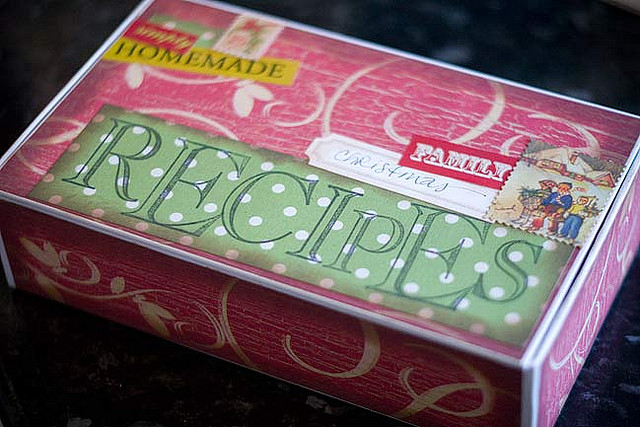
By Johanna Gohmann
Last Thanksgiving, my husband and I hopped in a rental car with our three-year-old and drove fourteen hours from Brooklyn to Indiana. We wanted to celebrate the holiday with my parents, my seven siblings, and the chaotic swarm of children that makes up my many nieces and nephews.
We set off around four in the morning, and our son had a diaper explosion just before dawn at a rest stop somewhere in Pennsylvania. It was a mess of such magnitude, I stood paralyzed for several moments under the florescent lighting, debating if the best strategy was simply to burn the structure down and flee. I didn’t know it then, but I should have taken my son’s booming bowels as a warning shot: a foreshadowing of the weekend to come.
When we finally pulled up to my parents’ house, we were greeted by black skies and the ominous wail of a tornado siren, which for southern Indiana, isn’t exactly a seasonal sound in late November. My mother hugged us in welcome and croaked into my ear that she had awoken that morning with the flu. But not to worry—she was still making the entire meal.
Which she did, despite protestations and offers of help. The next day she waved us all away, hobbling around the kitchen high on Tylenol Cold, basting the bird in its juices and what we hoped wasn’t the Norovirus.
My brothers and their families trickled in with their children, and the clouds outside hung heavy and low, still teasing the idea of a storm. Adding to the odd energy in the air was the fact that it was my parents’ forty-ninth wedding anniversary. While under normal circumstances this would be a very happy occasion, my father is in the late stages of Alzheimer’s. He’s in a wheelchair and can no longer really speak. My mother has insisted on keeping him at home with her throughout his illness while a rotating cast of caretakers comes in to assist her with his needs. There have been various pushes over the years to consider placing him in a nursing home, but my mother was as receptive to this idea as she was to someone offering to cook her Thanksgiving turkey: thanks but no thanks, now please get out of her kitchen.

Growing up in my large, Catholic family, holiday meals are some of my most vivid memories. We used to squeeze into our tiny dining room, my father pressed so tightly against a bay window it’s a wonder he didn’t shatter through to the backyard. We wore our “church” clothes, which for me meant a dress and thick tights that made my legs feel like they were in plaster casts. Gravy was served in a gravy boat shaped like a turkey, and when you tipped it, gravy poured from the bird’s mouth as though it was vomiting beige mucus onto your meal. We used to fight over whose turn it was to use it.
Our local priest would join us for dinner, my parents perhaps hoping that having a man of God at the table might keep us from reenacting scenes from Alien with the turkey carcass. They were wrong of course. Father Jerry or no—someone was still likely to hide a bit of potato in Teddy’s milk, so that he’d take a swig and send his partially digested green bean casserole back up onto the table, barfing in unison with the gravy boat.

When he was well, my dad was what people called “a real character.” And his blue eyes especially blazed to life at these dinners. He’d repeatedly clink his glass, offering various odd toasts and teasing decrees. One year he ordered there to be an election to select one of the family dogs “President.” We each cast ballots, and when his beloved yorkie “Holy” (so named for her tendency to lie motionless upon her back as though deep in devout prayer) lost out to the labrador “Brown” (much more lazily named for the color of his coat) my dad feigned outrage for hours, snorting with laughter as he shouted for a recount.
For years, at the end of each Thanksgiving meal, he’d wink at us kids and flash a thin box of mini Swisher Sweet cigars. Neither of my parents were smokers, and this was the one special occasion where this rule was broken. We’d follow my Dad to a secret location, where he’d allow us to join him in a puff of a post-meal stogie. Unfortunately for my mother, this “secret” hideaway generally turned out to be her walk-in closet, and she’d spend the next two weeks attending church in dresses that smelled like she’d just rolled in from an all night poker tournament.
But those days were now long gone, now. Father Jerry now lived in Indianapolis and, due to health reasons, was unable to travel. Trying to fit everyone into the dining room would be akin to a clown car routine, so now we dined in the living room, at long cafeteria tables borrowed from the elementary school.
As my family wandered through the house last Thanksgiving, I was reminded of Disney’s Haunted Mansion, where the illuminated ghosts swirl through the rooms. My parents’ house now felt more crowded with the past than it did people. To sit as an adult in a nest of childhood memories, before the same vomiting gravy boat, created in me a kind of emotional vertigo. Like one of those disorienting dreams where it’s your house, but also not your house. It’s you—but also not you.
It was clear none of us really had the words for the transformations within our family. No one knew how to talk about the force that was my father and how it was now gone. Yes, he was still at the table with the same bright blue eyes, but there would be no call for a canine electoral college. No brandishing of mini-cigars post meal. The truth was, he would never really speak to us again.
It seemed we were all coping with this in our own way. Offering and re-offering Stove Top stuffing to our children. Repeatedly complimenting my mother on the dumplings. But the air above the table felt as leaden and dense as the air outside.
One of my brothers—who is normally the calm, steady voice of reason—decided the best way to ease the tension was to drink a quarter bottle of whiskey and become as loud as was humanly possible. He tied a dishrag around his face and chased the grandchildren, making them scream with laughter. He pushed aside pie plates and challenged other brothers to arm wrestle. It was practically a one-man show of distraction and diversion, one that culminated in him slamming out to the front porch, shouting, “Watch this!” and proceeding to decimate some wind chimes with a broom.
Around the time the wind chimes clanged to the ground, I realized my mother had left the festivities. I wandered through the house and found her sitting in the library, where my father now slept. The room was dark, except for the flicker of the television. She sat perched beside my dad’s hospital-grade bed, holding his hand. I heard shrieks from the TV, and realized they were watching No Country For Old Men.
“Would you like me to put on something a little lighter?” I asked. “Maybe something with Meg Ryan?”
“No, no,” she said. “We like this movie.”
Forty-nine years ago on that night they’d been cutting the cake at their reception, my dad clutching a black top hat in his big hand. Now my mother sat at the edge of his adjustable bed, holding that same hand, while a veritable tribe of their creation stomped around on the other side of the door. They’d had ten children together. They’d lost two of those children. They’d watched each other’s parents die. Watched the leaves outside the window bud green, turn crimson, and drift to the ground, over and over and over again. They’d raked those leaves together. One holding open the Hefty bag, while the other stuffed it full of fall.
There were words I wanted to say. Words that swarmed through my head and chest. But I didn’t know how to form them or how to corral them into sentences. So instead I simply sat on the floor at their feet. Together we watched Javier Bardem murder people with a cattle gun, while the muffled shouts of my siblings drifted in from other rooms.
The next day most of the family returned to their own nearby homes, and the only ones who stayed on with my parents were my husband and I and our son, and my youngest brother and his girlfriend. While the house was much quieter, it wasn’t much calmer, as my three-year-old seemed to be coming down from the previous day’s mania. He streaked through the house like a toddler on a cocaine bender, eschewing all offers of toys in favor of banging open the china cabinet door and attempting to rake my mother’s Franklin Mint bell collection to the floor. Meanwhile, my mom was still wandering the house in a fever haze and was once again insisting on fixing an elaborate dinner, this time coughing her way through bacon-wrapped steaks.
By the time evening rolled around all I wanted was to put my child to bed, sit down with a fishbowl of wine, and stare off into the middle distance. I finally got him to sleep and collapsed on the couch. We were once again eating in the living room so that my Dad could eat with us because his wheelchair didn’t fit at the kitchen table. Together we sat before the Empire Strikes Back, our plates balanced on our laps. Exhausted, I stared blankly at C3PO and shoveled meat into my mouth on autopilot.
At one point, as I chomped down, I felt something sharp. Oh, well. I thought. Probably just a bone. Which perfectly captures my frazzled mental state. For 1.) I thought steaks should have tiny sharp bones and 2.) That it was perfectly fine to swallow them whole. Only after I cleared my plate, did I glance down and see the broken half of a large wooden toothpick and realize what I had done.
I quietly carried my plate to the kitchen then Googled on my phone: “Swallowing a toothpick dangerous?”
As someone with hypochondriac tendencies, I was all too familiar with turning to Google with strange medical concerns. My search history over the years was a treasure trove of “Mole shaped like a hat deadly?” and “Pain in which arm means heart attack?”
So I wasn’t surprised when my toothpick query sent back the WebMD equivalent of a breathless, wide-eyed woman screaming into my face: “Death comes for us all!”
Heaving a heavy sigh, I walked back into the living room and announced that I had swallowed half of a toothpick and, according to the Internet, it could puncture my internal organs, and so would someone kindly take me to the ER?
Everyone paused. My mother’s glass of white zinfandel hung in the air. Darth Vader breathed heavily from the TV. Everyone’s face did a slow motion dance between laughter and concern, ultimately forcing their features to settle into concern. My youngest brother leapt up and offered to drive me, so that my husband could stay home with our son. My brother’s twenty-four-year-old girlfriend began tugging on her stiletto boots, insisting on coming along.
The ER the night after Thanksgiving was a crowded place. I stood at the window and explained to the nurse that I had swallowed a toothpick.
“Yikes. That’s not good.”
I could see she very much wanted to ask—as any sane human does—how did I swallow a toothpick? Was I, an adult human, unfamiliar with the process of chewing and swallowing food? But she controlled herself, and simply ushered me back to a room, my brother and his girlfriend trailing behind.
A weary nurse came by and explained that because the toothpick was wooden, there was no way to do an X-ray.
“So instead, we’d like you to eat this turkey sandwich.”
I stared in confusion. Was it an electromagnetic turkey sandwich that was somehow capable of detecting wood?
“Look,” she sighed. “It’s to make sure the toothpick isn’t blocking anything. That you can get food down, okay?” She dropped the sandwich in my lap and left.
“It’s going to be okay, Miss Jo. I know it is!” My brother’s girlfriend smiled at me encouragingly. She always called me “Miss Jo,” like I was an old tap dance teacher from her childhood. She placed a hand on the back of my hospital gown, closed her eyes, and began to mumble under her breath something about Jesus taking the toothpick from my person.
I chewed the dry turkey and willed myself not to scream. All I’d wanted to do that night was relax for one goddamn minute. And now I was eating a hospital cafeteria sandwich at midnight while my brother’s wide-eyed girlfriend prayed over me. Not that I wasn’t touched by her kindness and concern in that moment: I very much was. I just didn’t want to be having that moment, period.
The sandwich went down, which seemed promising. Finally, a doctor rushed in clutching a clipboard.
“Ok, so uh…uh…I think…well I think…uh.” He had a nervous, halting way of speaking. Which is precisely the last thing one wants in an ER doctor. We all stared at him in anticipation.
“I think you’re going to…uh…uh…”
YES? Die? Live? Self immolate?
“I think you’re going to be…uh…okay.”
There was a collective sigh of relief.
He informed me that, while, yes, there was a chance it could puncture my liver leading to my untimely death, most likely I would just “pass it.”
“So you can just…uh…go home. But if you don’t feel…you know…okay…then…then…come back. Okay?” He had me sign his clipboard and left.
“Well that sounds…good? Right?” my brother asked, pulling on his coat.
I nodded, though my heart was pounding. That doctor had just doled out the absolute worst possible scenario ever for a hypochondriac: You might be okay, but if you think you’re dying of sepsis, give us a ring.
Did he not realize he was dealing with someone who was pretty much always sure she was dying of sepsis? Someone who had once gotten a CAT scan because she left Crest WhiteStrips on too long and it made her head feel funny?
I tried to take deep breaths while my brother and his girlfriend went to get the car. As I was signing my discharge papers, the nurse looked up at me.
“Oh and listen, if you do, uh, you know, pass it, you probably won’t know. So you shouldn’t. You know… Go looking for it.”
I nodded, imagining myself kneeling in the bathroom at my parents’ house, desperately pounding at my own excrement with a hammer.
“Good to know.”
Back in my childhood home, all was quiet. My mother and husband, upon hearing my stomach hadn’t in fact exploded, had gone to bed. I eased myself into my parents’ old bedroom, where my husband and son lay in the darkness, lightly snoring.
I wearily pulled on pajamas, jamming my mouthguard into my mouth. I lay down between my husband and son and stared into the darkness. This was the same room I used to pad into as a child when I was frightened or had had a nightmare. It still had the same wallpaper that used to creep me out because the shape of the design reminded me of ET when he was dying. But even with the unsettling wallpaper, coming into this room used to be like stepping into a warm cell of safety. I would climb up between my parents, and the warmth of their bodies would fill me with a certainty that everything was going to be okay.
Now, my mother slept in my old bedroom across the hall, where she’d been staying ever since my dad got sick. Dad was in his bed in the library. And my own son was now stretched out beside me, breathing softly. I was now the parent. I was meant to be the certainty.
The weight of this knowledge fell over me, and suddenly the stress, and sadness, and anxiety of the whole weekend began to whirl in my stomach, along with the dreaded toothpick. I could feel myself start to come undone. My eyes welled with tears, and my chest constricted.
And then suddenly, in the shadows, my son sat up. He turned to me, reached out his tiny hand, and patted my arm. Then he said something he’d never said to me before in his life: “It’s okay, Mama.”
He immediately lay back down, drifting back to sleep. And I stared at him, dumbfounded, wondering if I’d just imagined the whole thing. He had missed the events of the night—had slept through the whole “Mommy swallowing a foreign object” portion of the evening. But he had clearly, in that moment, intuited my distress. And something about hearing his soft little voice, hearing him try to comfort me, it was like a switch flipped, and a wave of calm flooded through me. My eyes went dry. My breathing slowed. And I began to pull myself back together. Because I had to. Because that’s what we do for our kids. For our spouses. For the people we love.
I thought of my parents sitting side by side, holding hands. If their forty-nine years together—a whole lifetime of immense joys and devastating heartbreaks and weird movies in the dark—if it had a lesson to offer, it was that when things get scary, you stay brave for the people who need you. You wade through the muck of worry. You continue to seek happiness, even when overwhelmed by ghosts and sorrow. You do whatever it takes. And sometimes that might mean not spiraling into anxiety. Sometimes it might mean being the strong one. And sometimes, it might even mean pushing out a toothpick.
•••
JOHANNA GOHMANN has written for New York Magazine, Salon, and BUST. Her essays have been anthologized in The Best Women’s Travel Writing Volume 10, A Moveable Feast: Life-Changing Food Encounters Around the World, and Every Father’s Daughter: 24 Women Writers Remember Their Fathers. www.JohannaGohmann.com

 Follow
Follow

